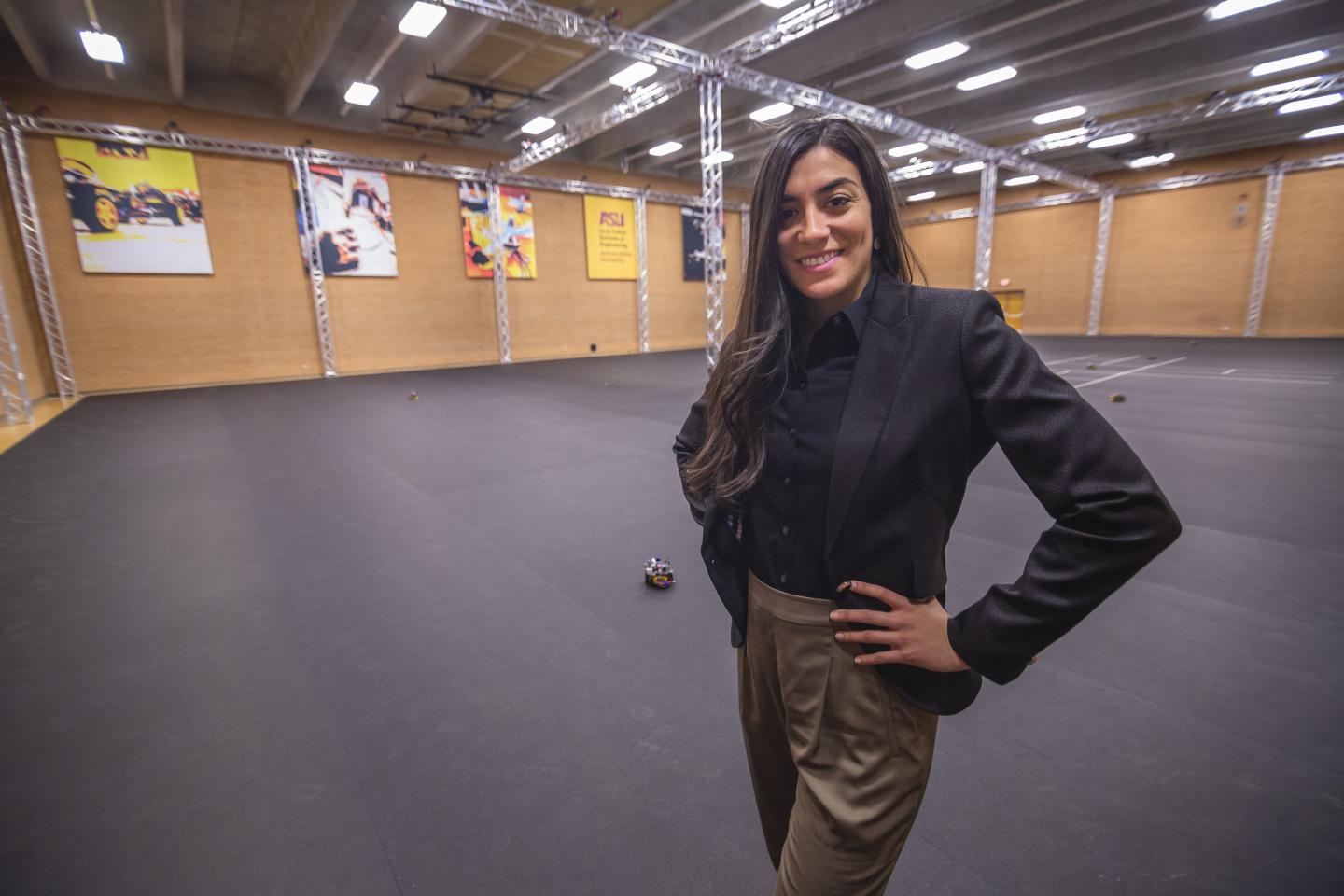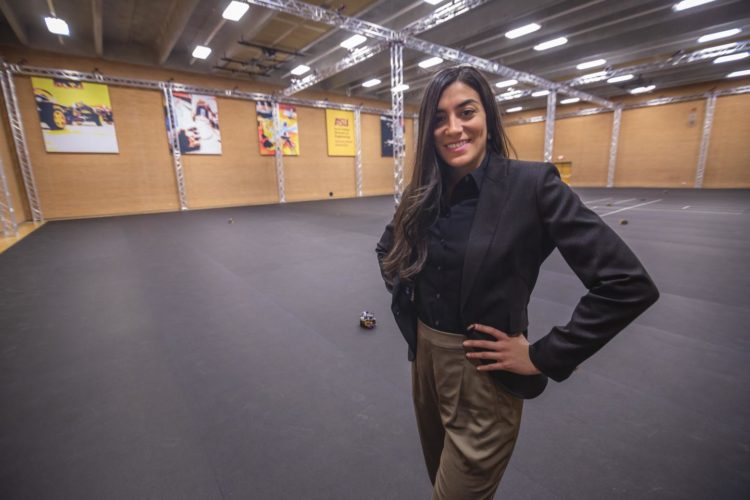Robotics research to the rescue

Credit: Robert Mayfield/ASU
Stephanie Gil, an assistant professor in the Ira A. Fulton Schools of Engineering at Arizona State University, has been awarded a 2020 Sloan Research Fellowship for computer science.
The award from the Alfred P. Sloan Foundation is one of the most prestigious designations bestowed on early career scientists in North America. Independent panels of senior scholars select winners based on recipients’ research accomplishments, creativity and the potential to become leaders in their field.
“I feel very honored,” says Gil, “and I appreciate what this recognition shows about the academic community around me at Arizona State University.”
Gil is one of just 126 new fellows chosen from nearly 1,000 nominees. She also is the seventh faculty member from ASU to be selected for this award since the first fellowships were announced in 1955. Alongside garnering the esteem of the scientific community, Sloan Fellows receive $75,000 across two years to advance their research.
For Gil, the award means additional support for the work she and her team are doing to coordinate control across systems of multiple robots. This research has implications for future applications ranging from groups of delivery drones to fleets of autonomous vehicles. Gil is currently working to endow teams of differing types of robots with capabilities to support search and rescue crews and other emergency services.
“One area of opportunity relates to communication,” says Gil. “There are times when emergency crews have trouble communicating with each other in remote areas. So we are looking at means through which groups of robots such as drones can act as a communication infrastructure. These devices can evaluate local conditions and organize themselves spatially to keep rescue workers in contact with each other as they progress across a given landscape.”
Gil says that she and her team are now starting to bridge the fields of robotics and communications.
“One of our most challenging questions is how communication itself can be used as a sensor,” says Gil. “Consider that a camera is a sensor. And the use of cameras in robotics has advanced a whole realm of research in mapping, for example. But when mapping data is communicated between robots, the wireless signals themselves also contain valuable information. Extracting this information and considering the new capabilities that it represents for robot learning and coordination is an understanding that I want to develop.”
Gil was nominated for the Sloan Research Fellowship by Sandeep Gupta, director of the School of Computing, Informatics, and Decision Systems Engineering, one of the six Fulton Schools.
“Dr. Gil demonstrates very strong potential, both in her track record of impactful scholarship and in her visionary research plan, which holds great promise for deep societal impact on many levels,” says Gupta. “In academia, she has demonstrated an impressive aptitude for working across field lines to produce cutting-edge, innovative science, and her educational objectives are well aligned with the ASU vision for education at the deepest levels. Dr. Gil’s proven excellence in both teaching and research demonstrates the outstanding promise she holds in becoming highly successful in her future scientific endeavors.”
Gil’s work also has been recognized by the National Science Foundation. In April 2019, she won a Faculty Early Career Development Program (CAREER) Award, which provides a $500,000, five-year grant to researchers with the potential to serve as role models and lead advances in their field.
Sloan Fellowships are part of the broader mandate of the Alfred P. Sloan Foundation, a not-for-profit grantmaking institution dedicated to advancing scientific knowledge. Grants are presented to directly support scientific research, but also to improve the diversity of scientific institutions and to enhance public engagement with science. Moreover, all of these endeavors are dedicated to improving global welfare. This service orientation is firmly part of Gil’s own mindset.
“I feel very strongly about focusing our efforts on technology development that addresses real-world challenges,” says Gil. “This includes involving our students — from undergraduates to doctoral candidates — across all of our work. It is important that they see we are not operating in a bubble. Our research is directed toward improving society.”
###
Media Contact
Lanelle Strawder
[email protected]
480-727-5618
Original Source
https:/





